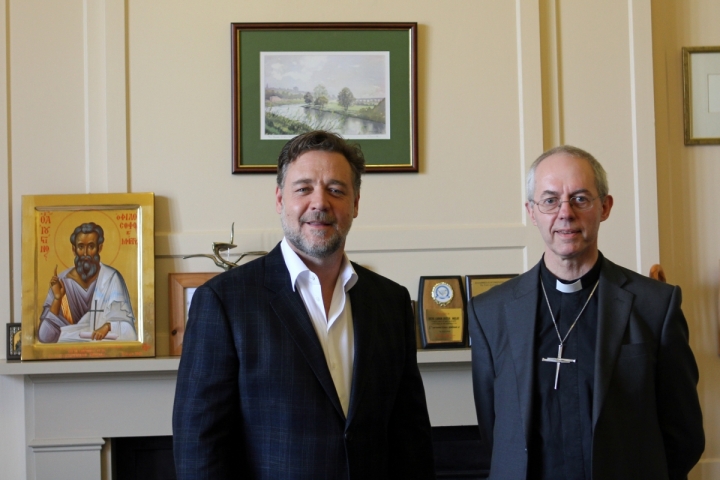From here:
“We are struggling with the reality that there are different groups around the place that the Church can do — or has done — great harm to,” the Archbishop says. “You look at some of the gay, lesbian, LGBT groups in this country and around the world — Africa included, actually — and their experience of abuse, hatred, all kinds of things.” But he says: “We must both respond to what we’ve done in the past and listen to those voices extremely carefully. Listen with love and compassion and sorrow. And do what is possible to be done, which is not always a huge amount.”
The Archbishop adds: “At the same time there are other groups in many parts of the world who are the victims of oppression and poverty, who we also have to listen to, and who find that issue an almost impossible one to deal with.
“How do you hold those two things [in balance] and do what is right and just by all? And not only by one group that you prefer and that is easier to deal with? That’s not acceptable.”
The most senior bishop – the first among equals – in the Anglican Communion can’t make up his mind whether or not the church has, for the last 2000 years, mistakenly taught that homosexual activity is wrong.
The problem appears to be that, rather than do what the church has done for centuries – take its moral cues straightforwardly from the Bible – Welby is “struggling” with the fact that different groups of people have different opinions on the issue. This astonishing development has completely flummoxed him.
Clearly what is needed is a series of facilitated conversions on the next problem that will face the first among equals: if, for fear of upsetting one side or other, the Archbishop of Canterbury is unwilling to take a side on the issue that is tearing his church apart, why bother to say anything about anything; no-one is going to listen – not even if it’s facilitated.


 From
From